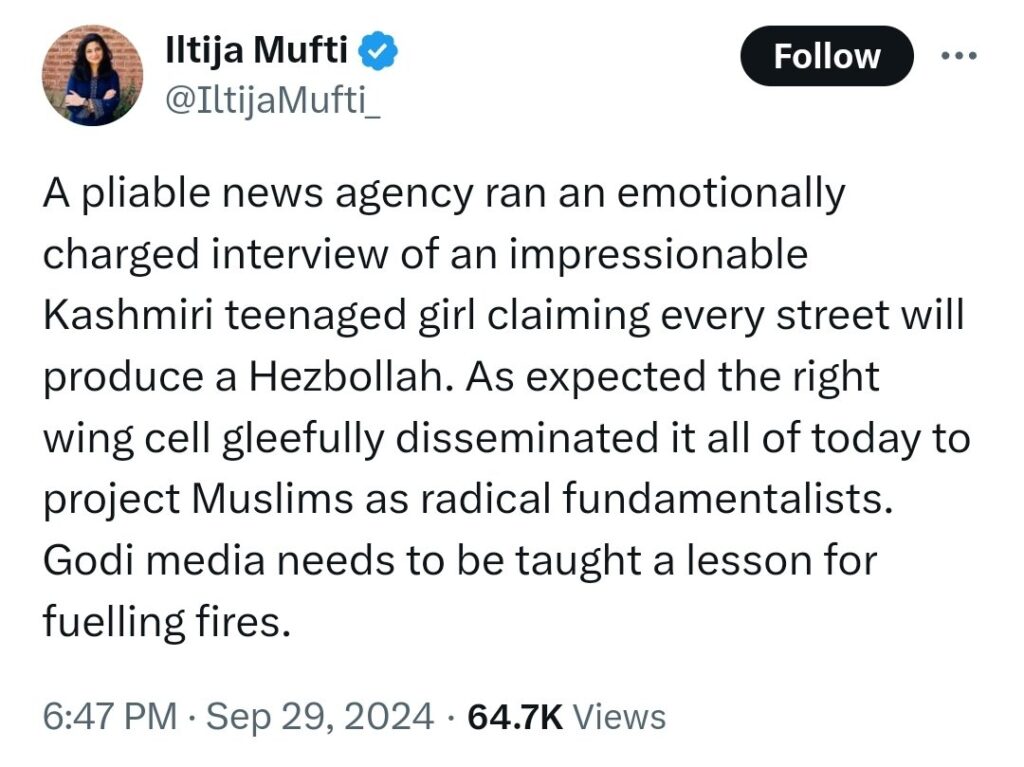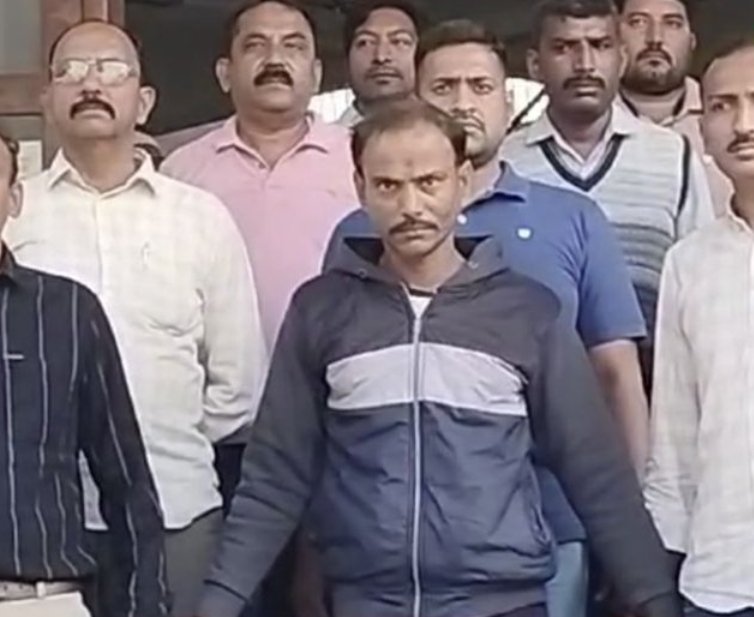Iltija Mufti, daughter of Peoples’ Democratic Party (PDP) leader and former Jammu and Kashmir chief minister Mehbooba Mufti, has stirred controversy after calling Hindutva a “disease.” The remark came in response to a disturbing video circulating on social media, showing three minor boys allegedly being forced to chant ‘Jai Shri Ram’ and beaten by a man.
In her post on X (formerly Twitter), Iltija Mufti wrote, “Ram the deity must hang his head in shame and watch helplessly as minor Muslim boys are whacked with chappals only because they refuse to chant his name.” She went on to say that “Hindutva is a disease that’s afflicted millions of Indians and sullied a God’s name.”

Her comments quickly attracted widespread backlash. In a subsequent post, Iltija attempted to clarify her statement, asserting that it was Hindutva, not Hinduism, that she opposed. She said, “Much outrage over my tweet and also whataboutery about Islam. The senseless violence carried out in the name of Islam has led to Islamophobia. Today, Hinduism (not Hindutva) is similarly being misused to justify violence and persecution of minorities. Let’s call a spade a spade.”
Speaking further to the media, Iltija reiterated that she was targeting Hindutva, which she described as stemming from the philosophy of Vinayak Damodar Savarkar, who advocated that India should be a nation for Hindus only. “Hindutva is a disease that needs to be weeded out,” she said, clarifying that she had always respected Hinduism as a religion of peace and compassion.
The remarks have drawn sharp reactions from political leaders, particularly from the Bharatiya Janata Party (BJP). Ravinder Raina, a BJP leader from Jammu and Kashmir, condemned the language used by Iltija Mufti, stating that videos involving AI manipulation are being spread, and the PDP leader’s comments were unacceptable. He called for an apology, asserting that while political differences are natural, religious sentiments should not be hurt.
BJP leader Agnimitra Paul also criticized the Mufti family, accusing them of spreading hatred and comparing India unfavorably with countries like Gaza and Bangladesh. “Iltija Mufti’s comments equating Islam with Hinduism are divisive,” Paul said, adding that the PDP had lost the support of the people, especially in Kashmir, due to their alleged anti-national rhetoric.
The controversy continues to unfold as political figures and citizens debate the implications of Iltija Mufti’s remarks on religious and political discourse in the region.





